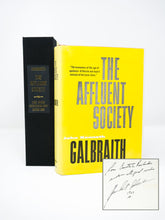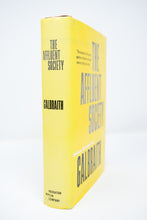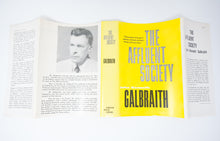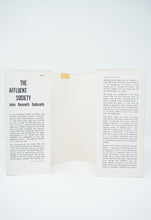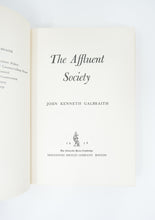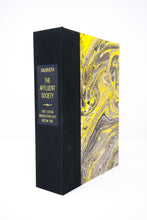
Boston: Houghton Mifflin Co., 1958
First edition. First printing. Inscribed by the author on the first free endpaper: “For C … L. Pawlowski / with all good wishes / John Kenneth Galbraith / 1969.” A near fine copy, square and unread. A little bumping to the head and foot of the spine. Mild traces of offsetting to the pastedowns and endpapers, causing a slight mark to the bottom of the ffep. In a bright, near fine and unclipped dust jacket. The spine slightly sunned. A tiny, .25’’ closed tear at the top of the front panel, with a bit of dried tape adhesive at the same point to the verso. A beautiful copy overall, scarce inscribed. Housed in a custom marbled box.
The Harvard economist’s most influential work, selected by The Modern Library as one of the greatest non-fiction books of the 20th Century. Galbraith challenges conventional wisdom against the new realities of post-war America, which he describes as rich in the private sector and relatively poor in the public sector. He argues that all essential consumer needs have been satisfied, and that a new system of want creation has emerged, created by vested corporate interests. This endless devotion to consumption and economic growth - a more is better mentality - is at the expense of the public good and generally a threat to economic security. Though many of Galbraith’s ideas were met with strong criticism by other economists - notably by F.A. Hayek - The Affluent Society would influence the counter culture movement of the 1960's, as well as liberal politics of the time, which promised to reallocate affluence to public causes.












